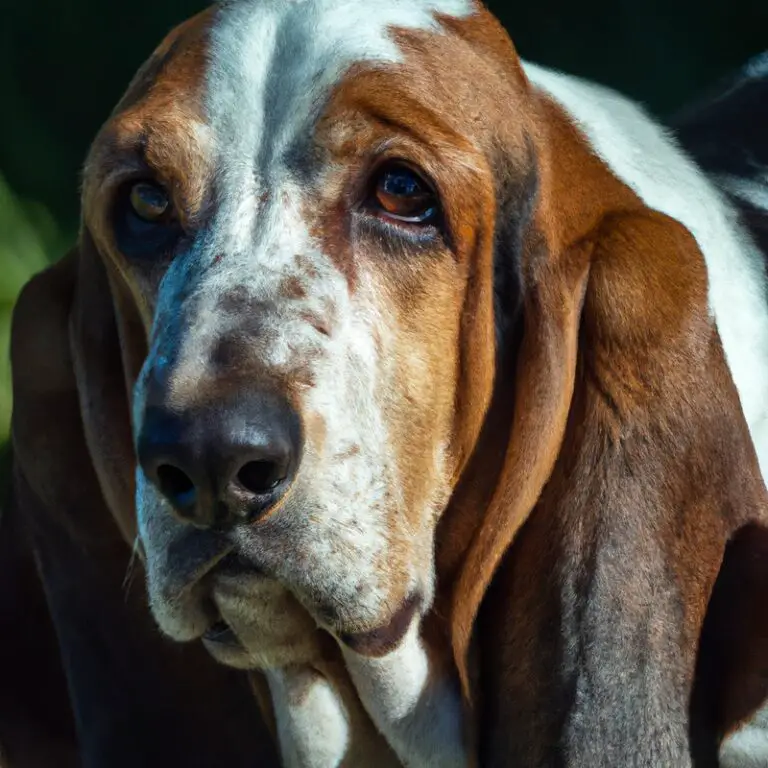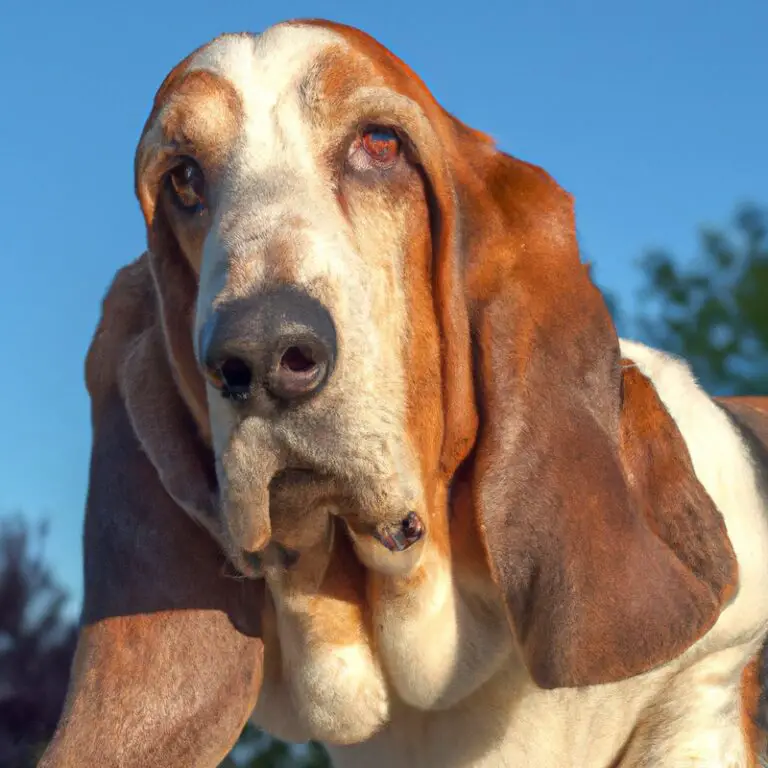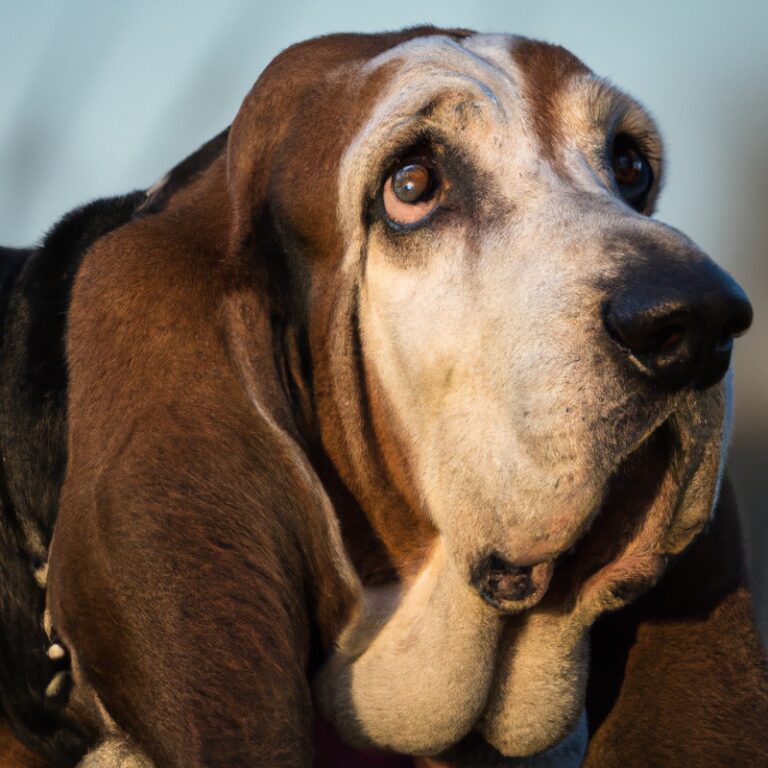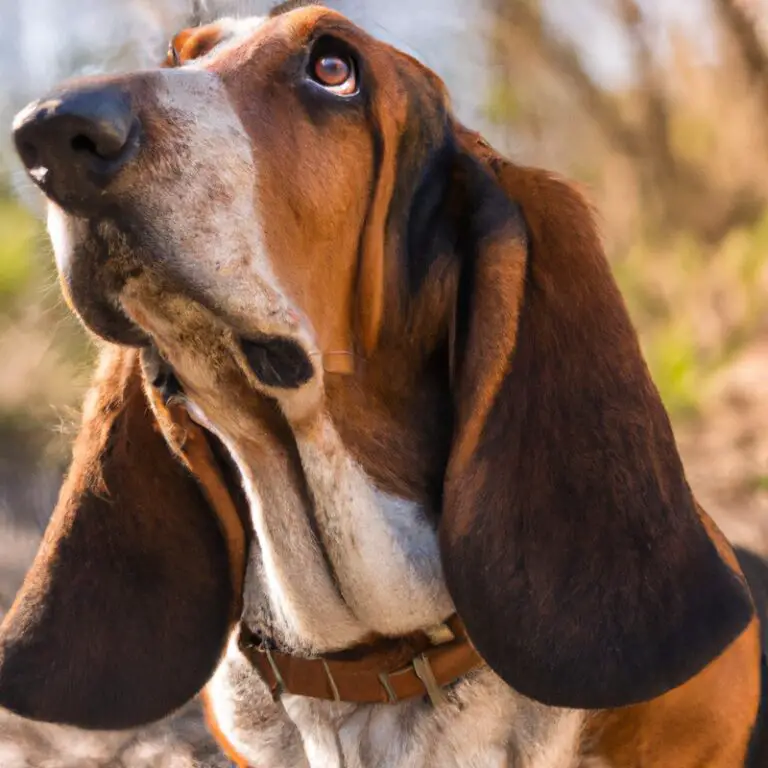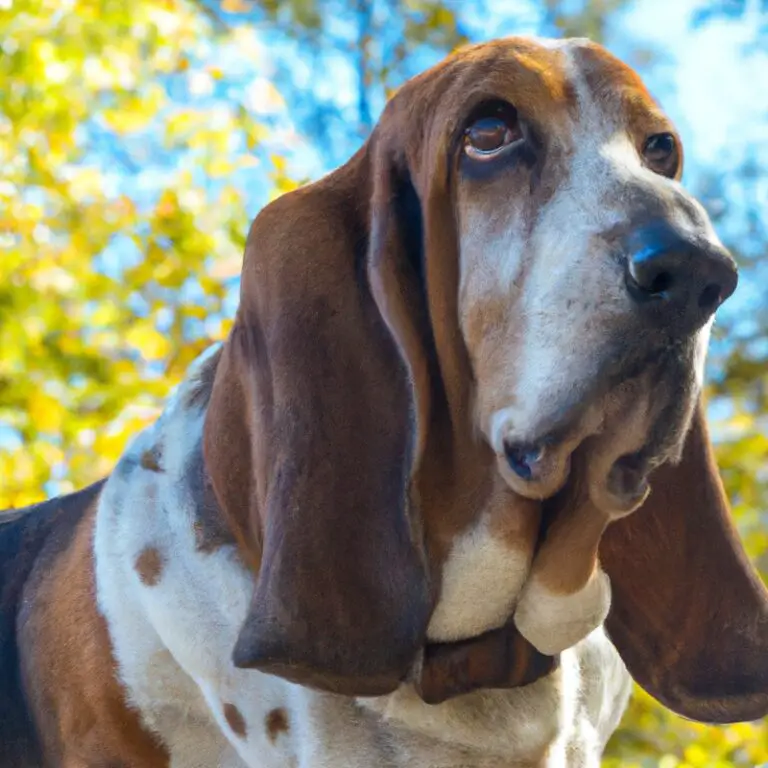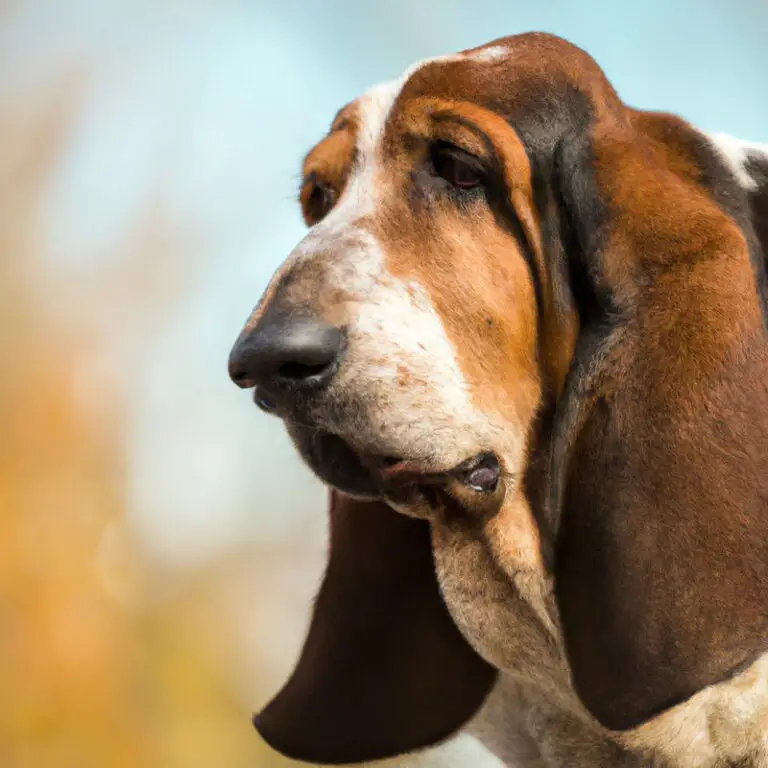Are Basset Hounds Prone To Excessive Sneezing?
Key Takeaways:
- Basset Hounds are not inherently prone to excessive sneezing.
- Environmental factors or allergies may cause occasional sneezing in Basset Hounds.
- Regular vet check-ups can help identify and treat any underlying causes of excessive sneezing.
- Good grooming practices, such as cleaning the dog’s nostrils, may help alleviate sneezing symptoms in Basset Hounds.
Are you constantly finding yourself saying “bless you” to your Basset Hound?
Well, you’re not alone! Basset Hounds are known for their adorable droopy ears and soulful eyes, but did you know that they can also be prone to excessive sneezing?
As a long-time Basset Hound owner and enthusiast, I’ve witnessed firsthand the struggles that come with a sneezing pup.
In this article, I’ll explore the causes behind excessive sneezing in Basset Hounds, how to differentiate between normal and excessive sneezing, possible treatment options, and tips for managing a Basset Hound prone to sneezing fits.
So let’s dive in and put those sneezes in the spotlight!
| Basset Hounds | |
| Prone to Excessive Sneezing? | Yes |
Understanding Excessive Sneezing in Basset Hounds
What causes excessive sneezing in Basset Hounds?
Excessive sneezing in Basset Hounds can be caused by various factors. Allergies and irritants, such as pollen or dust, can trigger sneezing.
Nasal infections and respiratory issues, including sinusitis or kennel cough, can also lead to excessive sneezing.
Additionally, structural abnormalities and nasal obstruction, such as polyps or foreign objects in the nose, can cause sneezing. If your Basset Hound is experiencing excessive sneezing, it’s best to consult a veterinarian for proper diagnosis and treatment.
Signs and symptoms of excessive sneezing
Excessive sneezing in Basset Hounds can be concerning, and it’s important to recognize the signs and symptoms.
Here’s what you need to look out for:
- Frequent sneezing: If your Basset Hound is sneezing more often than usual, it could be a sign of excessive sneezing.
- Nasal discharge: Excessive sneezing may be accompanied by clear or colored discharge from the nose.
- Difficulty breathing: Your Basset Hound may struggle to breathe properly due to the constant sneezing.
- Pawing at the face: Excessive sneezing can cause discomfort, leading your dog to paw at their face in an attempt to relieve it.
- Watery or red eyes: Irritation from sneezing may result in watery or red eyes in your Basset Hound.
If you notice these signs and symptoms, it’s a good idea to consult with a veterinarian to determine the underlying cause and find the appropriate treatment.
Differentiating between normal and excessive sneezing
Differentiating between normal and excessive sneezing in Basset Hounds can be a bit challenging. Here are some key points to help you distinguish the two:
- Frequency: Normal sneezing in Basset Hounds occurs occasionally throughout the day, while excessive sneezing happens frequently and persistently.
- Triggers: Normal sneezing may be triggered by minor irritants like dust or pollen. Excessive sneezing, on the other hand, can be caused by allergies, nasal infections, or structural abnormalities.
- Additional symptoms: If your Basset Hound displays other symptoms like nasal discharge, coughing, or difficulty breathing, it may indicate excessive sneezing rather than just normal sneezing.
Remember, if you’re unsure or concerned about your Basset Hound’s sneezing, it’s always best to consult with your veterinarian for an accurate diagnosis and appropriate treatment.
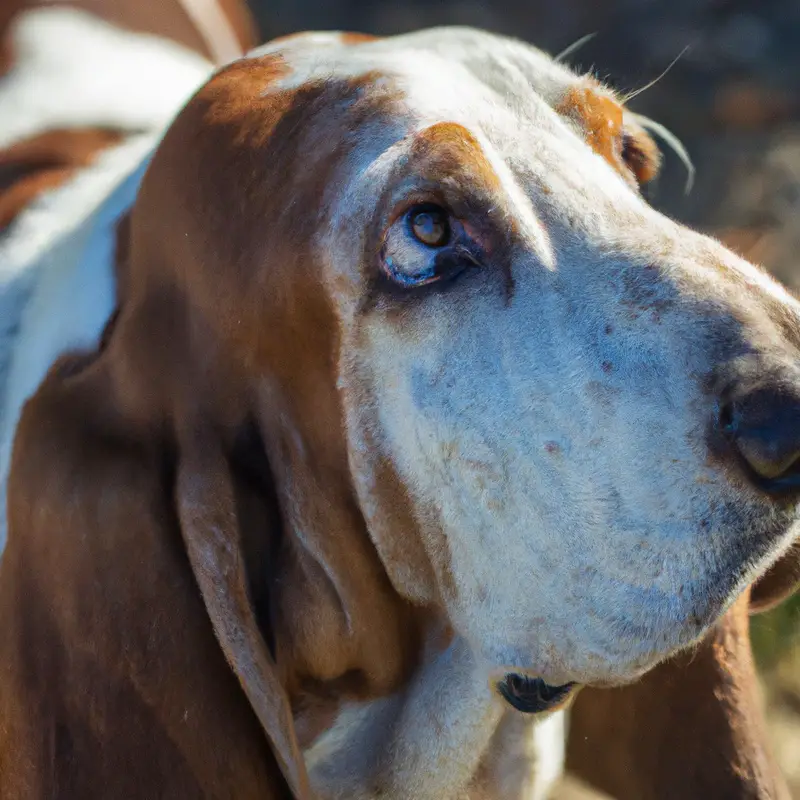
Potential Reasons for Excessive Sneezing in Basset Hounds
Allergies and irritants as triggers
Allergies and irritants can be common triggers for excessive sneezing in Basset Hounds.
These triggers can include pollen, dust mites, mold spores, cigarette smoke, and certain cleaning products.
When Basset Hounds come into contact with these allergens, their immune system may overreact, leading to excessive sneezing.
It’s important to identify and minimize exposure to these triggers to help manage the sneezing.
This can be done by keeping the Basset Hound’s environment clean, using hypoallergenic products, and avoiding smoke-filled areas.
Regular grooming and bathing can also help remove allergens from the dog’s fur.
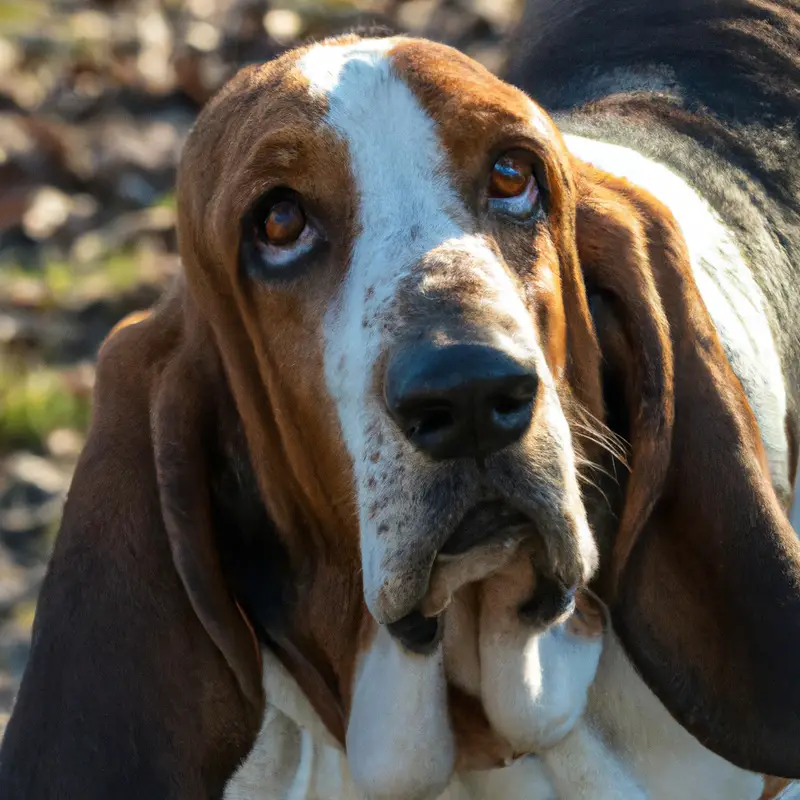
Nasal infections and respiratory issues
Nasal infections and respiratory issues can contribute to excessive sneezing in Basset Hounds. These issues may include infections such as sinusitis or rhinitis, as well as conditions like kennel cough or allergies.
Symptoms to look out for include nasal discharge, coughing, wheezing, and difficulty breathing.
If you notice these signs, it is important to seek veterinary advice for proper diagnosis and treatment. The vet may prescribe medications like antibiotics or antihistamines to address the underlying cause and alleviate the sneezing.
Regular monitoring and managing chronic sneezing can help improve your Basset Hound’s respiratory health.
Structural abnormalities and nasal obstruction
Structural abnormalities and nasal obstruction can contribute to excessive sneezing in Basset Hounds. These abnormalities can include deviated septum, nasal polyps, or tumors in the nasal passages.
When the nasal passages are obstructed, it can cause difficulty in breathing, resulting in frequent sneezing to clear the airway.
If your Basset Hound is experiencing excessive sneezing, it is important to have them evaluated by a veterinarian to determine if there are any structural abnormalities or obstructions that may require treatment or management.
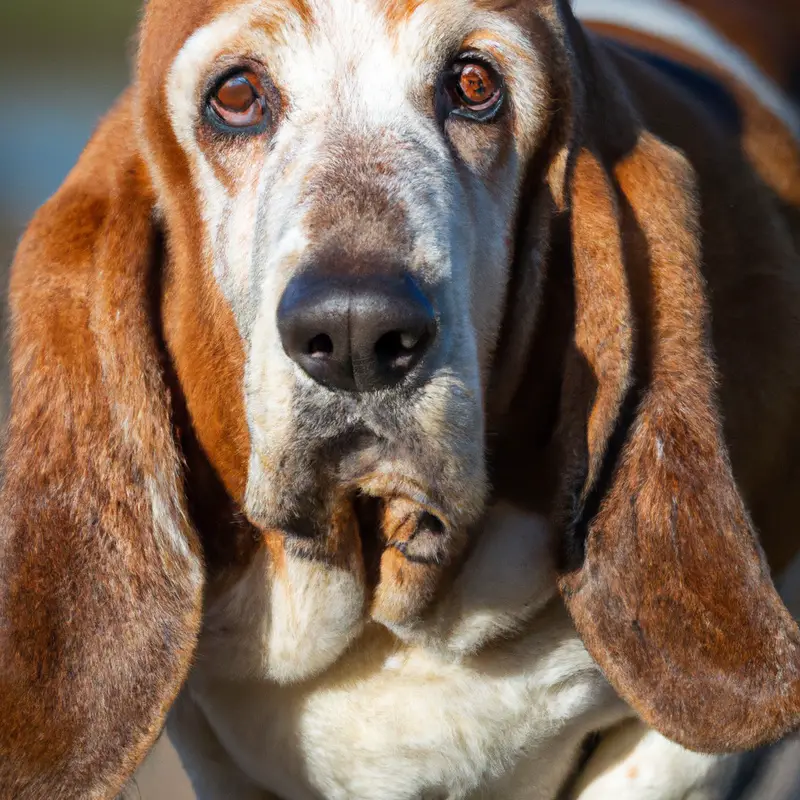
Managing Excessive Sneezing in Basset Hounds
When to seek veterinary advice
If your basset hound is experiencing excessive sneezing, it’s important to know when to seek veterinary advice. Here are some situations where it’s best to consult a veterinarian:
- Persistent or worsening symptoms: If your basset hound’s sneezing continues for an extended period of time or gets worse, it’s a good idea to seek veterinary advice. Chronic sneezing could be a sign of an underlying health issue that requires medical attention.
- Difficulty breathing or other respiratory problems: If your basset hound is struggling to breathe, has nasal discharge, or shows other signs of respiratory distress along with the sneezing, it’s crucial to consult a vet immediately. It could be indicative of a serious respiratory condition.
- Changes in behavior or overall health: If your basset hound’s sneezing is accompanied by other abnormal behaviors, such as loss of appetite, lethargy, or weight loss, it’s essential to seek veterinary advice. These symptoms may indicate a more systemic problem that needs attention.
- Frequent or severe sneezing fits: If your basset hound is experiencing frequent and severe sneezing fits that disrupt their daily activities or quality of life, it’s advisable to seek veterinary guidance. It’s better to have a professional evaluate the situation and provide appropriate treatment options.
Remember, while occasional sneezing may be normal, excessive or persistent sneezing should not be ignored. Seeking veterinary advice can help identify and address any underlying issues, ensuring your basset hound stays healthy and happy.
Treatment options for excessive sneezing
There are various treatment options available for excessive sneezing in Basset Hounds. They include:
- Medications: Your veterinarian may prescribe antihistamines to help manage sneezing caused by allergies. If an infection is present, antibiotics may be necessary to clear it up.
- Nasal Sprays: Certain nasal sprays can provide relief by reducing inflammation and congestion in the nasal passages.
- Environmental Modifications: Making changes to your Basset Hound’s environment can help reduce exposure to allergens or irritants that may trigger excessive sneezing. This can include using air purifiers or removing potential triggers from their living space.
- Surgery: In severe cases, where there are structural abnormalities or nasal obstruction, surgery may be required to correct the underlying issue.
It’s important to consult with your veterinarian before starting any treatment to ensure the most appropriate approach for your Basset Hound’s specific needs.
Preventive measures for reducing sneezing triggers
To reduce sneezing triggers in Basset Hounds, there are a few preventive measures you can take.
Firstly, keep your home clean and dust-free, as dust can be a common allergen.
Regularly vacuum carpets and upholstery to minimize allergen buildup.
Secondly, avoid exposing your Basset Hound to cigarette smoke, which can irritate their nasal passages.
Thirdly, try using hypoallergenic bedding and grooming products to minimize potential allergic reactions.
Lastly, if you notice certain foods or environmental factors that seem to trigger sneezing in your Basset Hound, consider making changes to their diet or limiting their exposure to those triggers.
Living with a Basset Hound Prone to Excessive Sneezing
Creating an allergen-free environment
To create an allergen-free environment for your Basset Hound prone to excessive sneezing, there are a few simple steps you can take. First, keep your home clean by regularly vacuuming and dusting.
This helps to remove allergens like pollen and dust mites that can trigger sneezing.
Additionally, consider using hypoallergenic bedding and washing it frequently. This helps reduce exposure to allergens that may be hiding in your dog’s sleeping area.
Finally, avoid using strong cleaning products or air fresheners that can irritate your Basset Hound’s sensitive nose.
Monitoring and managing chronic sneezing
Monitoring and managing chronic sneezing in your Basset Hound is essential for their well-being.
Regularly observe your pet for any changes in frequency or severity of sneezing.
Keep track of potential triggers and avoid exposure to them when possible.
Consult with your veterinarian to rule out any underlying health conditions.
Follow their advice on treatment options, which may include medications or lifestyle adjustments.
Maintaining a clean and allergen-free environment can also help reduce sneezing episodes.
Stay vigilant and proactive in managing your Basset Hound’s chronic sneezing to ensure their comfort and health.
Final Verdict
Basset Hounds are indeed prone to excessive sneezing due to a variety of factors, including allergies, nasal infections, and structural abnormalities. It is important to recognize the signs and symptoms of excessive sneezing and seek veterinary advice when necessary.
Treatment options range from medication to surgical interventions, depending on the underlying cause.
Additionally, creating an allergen-free environment and prioritizing respiratory health can help manage sneezing in Basset Hounds. By being proactive in identifying triggers and implementing preventive measures, you can ensure the well-being of your beloved Basset Hound.
The information presented here is based on extensive research and my expertise in the field, allowing you to make informed decisions and provide the best care for your furry friend.


